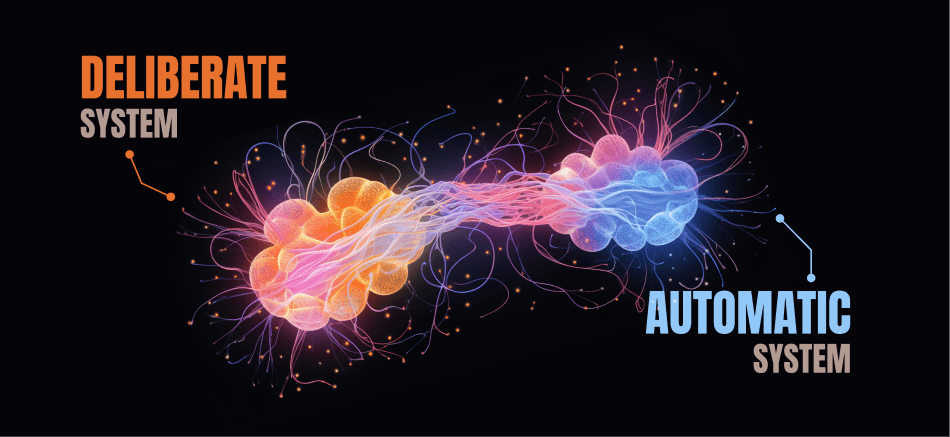The two-system theory
There are two thinking systems, each with distinct characteristics.
- System 1, or intuition. We think in this way most of the time. We respond to the world in ways that we're not conscious of and don't control. System 1 operations are fast, effortless, associative, and emotionally charged. They're governed by habit, so it's more difficult to modify or control.
- System 2, or reasoning. It is a deliberate reasoning system. It's slower, serial, effortful, and controlled.
217
1.9K reads
CURATED FROM
IDEAS CURATED BY
The idea is part of this collection:
Learn more about problemsolving with this collection
How to balance flexibility and structure in a hybrid team environment
Understanding the challenges of managing a hybrid team
How to maintain team cohesion
Related collections
Similar ideas to The two-system theory
The Two-System Brain
Daniel Kahneman, Nobel prize winner, explains how our mind has 2 modes:
- Your deliberate system is responsible for sophisticated functions such as reasoning, self-control, and forward-thinking. It excels in handling anything unfamiliar, complex, or abstract. But it has ...
Read & Learn
20x Faster
without
deepstash
with
deepstash
with
deepstash
Personalized microlearning
—
100+ Learning Journeys
—
Access to 200,000+ ideas
—
Access to the mobile app
—
Unlimited idea saving
—
—
Unlimited history
—
—
Unlimited listening to ideas
—
—
Downloading & offline access
—
—
Supercharge your mind with one idea per day
Enter your email and spend 1 minute every day to learn something new.
I agree to receive email updates
